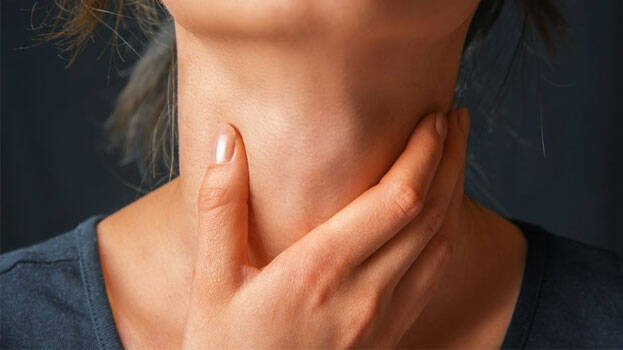

World Thyroid Day is celebrated on the 25th of May every year, intending the recognition of thyroid disease burden, the patient's experience and all those committed to the international study and treatment of thyroid illnesses. Thyroid diseases are, perhaps, among the most prevalent endocrine disorders globally.
Types of thyroid diseases
Thyroid diseases are unique in their diagnosis, treatment, and visibility. Early diagnosis and treatment are crucial for effective management. The five most important thyroid diseases include hypothyroidism, hyperthyroidism, goitre/iodine deficiency disorders, Hashimoto's thyroiditis, and thyroid cancer.
Hypothyroidism
It is one of the most common problems affecting the thyroid gland. This condition occurs when the gland stops making enough hormone. The most common cause of hypothyroidism is Hashimoto's thyroiditis, an autoimmune disorder that ultimately causes the gland to stop working. In early stages, hypothyroidism may not cause noticeable symptoms. But the symptoms can include Fatigue, Weight gain, Constipation, skin issues, Slowed heart rate, irregularities in menstruation.
Hypothyroidism is treated with thyroid hormone medicine that is effective when taken at the correct dose. If left untreated, hypothyroidism can lead to high cholesterol and heart problems over time.
Hyperthyroidism
It occurs due to an overactive thyroid gland functioning, which accelerates the metabolism of the body. It can also be caused by a metabolically active thyroid nodule making too much hormone or by a short-lived thyroid gland inflammation. The symptoms of hyperthyroidism could include weight loss, hand tremors, rapid or irregular heartbeat, nervousness, insomnia, mood swings, irritability, diarrhoea, hair loss, warm skin, etc. Hyperthyroidism can be treated with medication, radioactive iodine therapy or surgery.
Goitre/Iodine Deficiency Disorders
Goitre is an enlarged thyroid gland, often caused by iodine deficiency, which is essential for thyroid hormone production. Swelling in the front of the neck, fatigue, weight gain, and cold intolerance, problems with memory and concentration, dry skin, and increased sleepiness are common symptoms. Treatment mainly depends on the underlying cause and the severity of the goitre. Treatment options may include iodine supplementation, anti-thyroid medications, or surgery.
Hashimoto's Thyroiditis
An autoimmune disease where the immune system attacks the thyroid, leading to hypothyroidism. Symptoms can vary, but may include fatigue, weight gain, intolerance to cold, constipation, and difficulty concentrating.
Thyroid Cancer
Compared to other cancers, thyroid cancer is less common. A disorder in which malignant (cancer) cells develop in thyroid gland tissues. There are several forms of thyroid cancer. Thyroid cancer risk can be influenced by age, gender, and radiation exposure.
Risk factors
The biggest risk factors for thyroid cancer include a family history of thyroid cancer, some genetic mutations, and previous radiation exposure, particularly to the head and neck region. Also, it's more common in females, as 75% of thyroid cancer patients are female and less common among male patients hence it is a risk factor.
Symptoms
Most thyroid cancers don't cause symptoms aside from a lump on the neck. Most commonly, health care professionals discover lumps during exams or incidentally on CT or ultrasound imaging of the neck. Sometimes people find lumps on their own. If the mass is large enough, it can cause symptoms, including swallowing and breathing problems, hoarseness and a cough.
Diagnosis
After a lump or nodule is detected clinically, an Ultrasound scan of neck is performed to confirm the presence of thyroid lession followed by fine-needle aspiration biopsy is the next diagnostic step. In this procedure, cells from the lump are collected using a thin needle and analyzed under a microscope.
The final diagnosis and treatment are based on histopathological examination of the specimen after surgery.
About 80% of thyroid nodules are benign, which means they are not cancerous, and about 10% are found to be cancerous, or malignant. The remaining 10% are indeterminate, and a repeat biopsy or surgery may be considered to determine the diagnosis.
In case of suspicious lesions, the patient can be taken up for surgery with an option of frozen section, which will help to decide on how to proceed further.
Treatment
Treatment for thyroid cancer is dependent on the type, size and stage of the tumour. Options include surgery, which may consist of partial or complete removal of the thyroid, external radiation therapy, chemotherapy or targeted drug therapy. In a certain type of thyroid cancer patient will also require post-operative Radioactive Iodine treatment to treat remanent tissues.
Prepared by: Dr. Vineeth Viswam, Senior Consultant - ENT Surgery, Aster Medcity, Kochi
